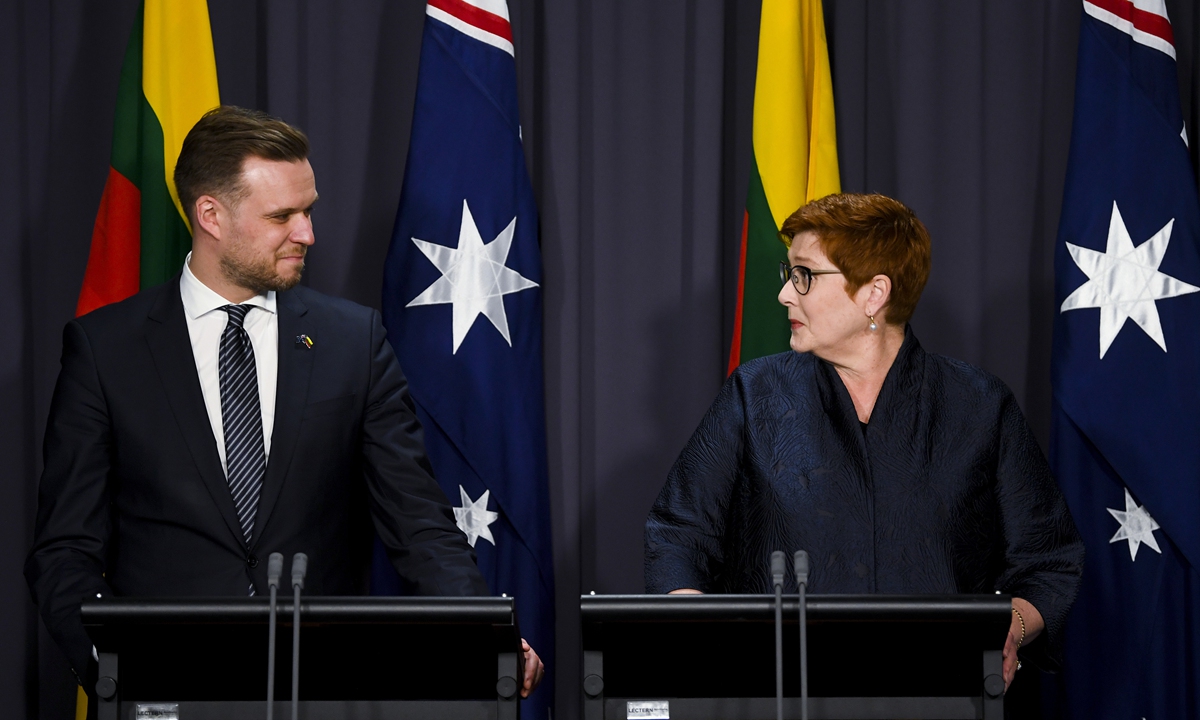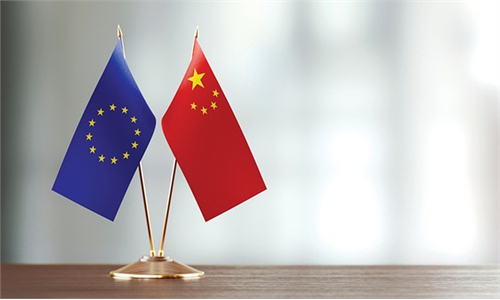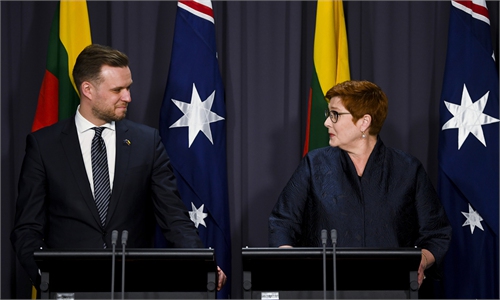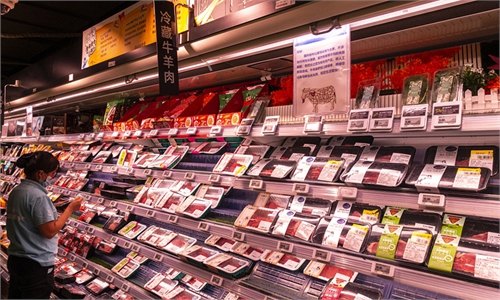GT Voice: Lithuania’s roping in allies won’t weaken China’s resolve to defend sovereignty

Australian Foreign Affairs Minister Marise Payne (right) and Lithuania's counterpart Gabrielius Landsbergis hold a press conference at Parliament House in Canberra, Australia on February 9, 2022. Photo: VCG
By hyping the "economic bully" accusation against China, Lithuania appears to be trying its best to seek support from its allies and fellow "victims" of the so-called coercion in an attempt to continue its mistakes that undermine China's core interests. And its actions will only risk a stronger response from China.
Lithuania and Australia agreed to strengthen cooperation in countering pressures from China during Australian Foreign Minister Marise Payne's meeting with her Lithuanian counterpart Gabrielius Landsbergis in Canberra on Wednesday, according to reports.
It would only be a wishful thinking if Lithuania is pinning some hope on Australia to relieve the economic pressure it has faced after allowing the establishment of the so-called "Taiwanese Representative Office" in its capital Vilnius. Given the economic structure of Lithuania and Australia, no matter how the two countries strengthen cooperation, it will not have too much impact on the industrial structure of each. Australia is a resource-producing and exporting country with limited demand for Lithuanian agricultural products, while Lithuania is too small to absorb the huge amount of coal, minerals, seafood, wine and other products from Australia.
Politicians in Vilnius would be so wrong if they still believe that pleading the sympathy of the international community or roping allies in its anti-China front can allow them to confuse right and wrong and to avoid correcting the mistake in the Taiwan question. No one should underestimate the seriousness of Lithuania's decision in supporting Taiwan secessionist forces and China's resolve to defend its sovereignty rights.
While Lithuania has repeatedly cooked up claims of "economic coercion" by China, no Chinese official or government agency had announced any economic measures against Lithuania. The Chinese Customs on Wednesday suspended imports of beef from Lithuania, but there was no official reason given.
The Western-led political farce surrounding Lithuania that made it clear in recent times that China must make Lithuania a "typical case" to show to the international community that the one-China principle is a red line that cannot be crossed, or another country could be induced to follow suit.
If China was to inflict pain on Lithuania, there are many options it can take. For example, in the same way as the US sanctioned Chinese companies, China can ban Lithuanian components in its imported products while goods containing Chinese parts cannot be exported to Lithuania.
While China has options, it will not recklessly sanction others as the US did. But if Lithuania continues down the wrong path, there is no denying that markets and companies will sense the risks of Lithuania's political blunder and act accordingly to avoid being dragged into a potential political dispute. That cannot be good for the economic development of the Baltic country.



